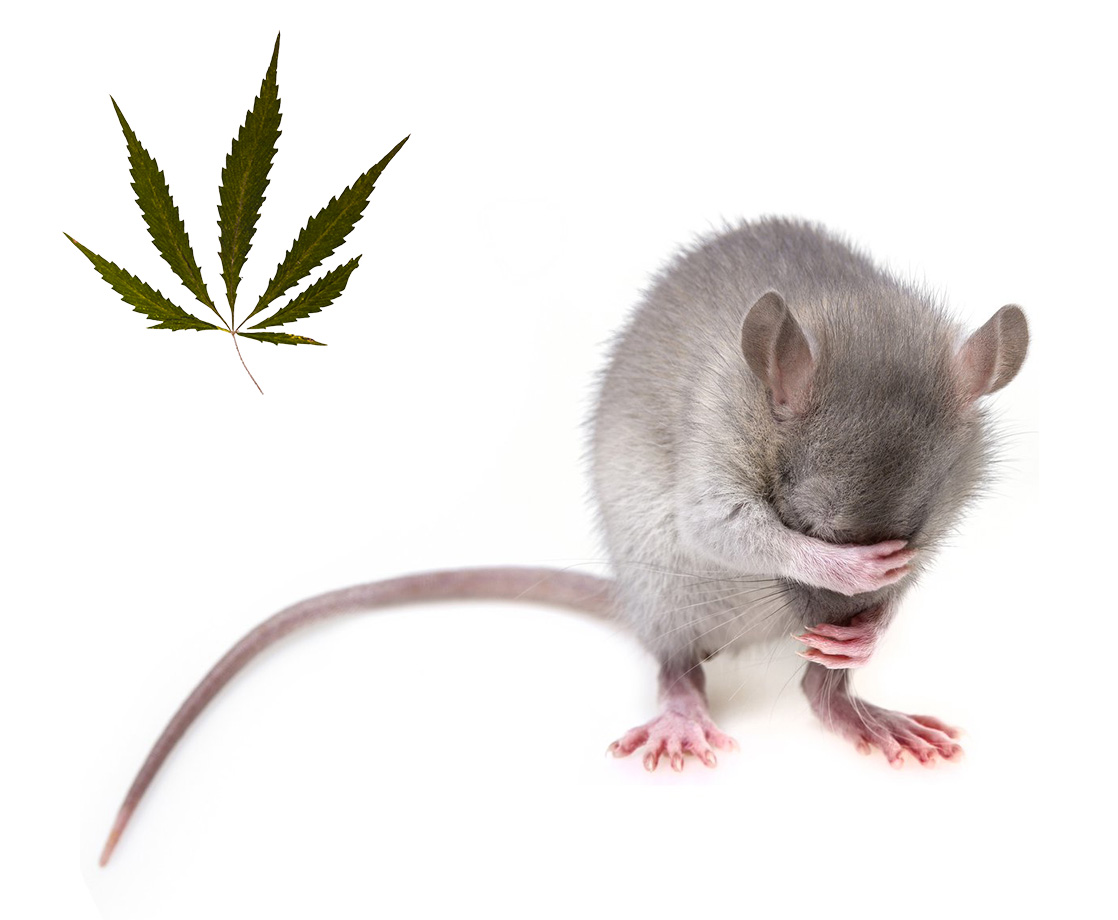A recent study from the University of Arkansas, where mice died after being given CBD, may change the public’s perception of CBD. But probably not.
The study dosed mice on CBD to see what would happen to the little guys’ livers. Some of these mice died within 24 hours of being administered CBD, which prompted frightening headlines such as “Marijuana Study Finds CBD Can Cause Liver Damage” and “New Mouse Study Finds Level of Liver Toxicity for CBD.”
Should we start saying no to CBD? Before we ditch those hemp pre-rolls that can’t even get us lit, let’s look at how the study was conducted.
Because mice are much smaller than humans, the researchers “allometrically scaled” the doses so they were proportional to human doses. The thing is, the researchers scaled the doses in the wrong direction.
Dose scaling was based off the “maximum recommended human maintenance” amount for Epidiolex in human patients, the first and only FDA-approved CBD drug derived from cannabis. That dose is 20mg/kg. So we’d expect the dose for the mice to be much, much smaller, somewhere in the range of 0.3mg/kg.
The researchers instead dosed the mice on 0, 246, 738, or 2460mg/kg. Yeah, you read that correctly: at the higher end, the mice got 120 times the recommended dose for a full-grown human being.
So no shit the mice got liver damage and died.
The University of Arkansas study pulled the same kind of bad science we saw back in the 1970s, when Dr. Heath erroneously (and unethically) concluded that marijuana caused brain damage in rhesus monkeys — after forcibly suffocating the poor simians with weed smoke.
To the Arkansas researchers’ credit, their study does offer additional evidence that CBD can wreck the liver and potentially compromise people with hepatic diseases or who rely on medications to stay alive. But that’s not exactly news. Earlier this month, during the FDA’s public hearing on CBD, several doctors and toxicologists testified that CBD could cause health complications in certain people, especially at high doses.
Even the Arkansas study’s lead researcher, Igor Koturbash, admitted to this previous knowledge in an interview.
“If you look at the Epidiolex label, it clearly states a warning for liver injury,” he told Nutra Ingredients USA. “It states you have to monitor the liver enzyme levels of the patients. In clinical trials, 5 percent to 20 percent of the patients developed elevated liver enzymes, and some patients were withdrawn from the trials.”
Furthermore, although rodent studies are useful for determining a drug’s toxicity, mice aren’t humans. They have different physiologies and different metabolic systems than us. They don’t process drugs the same way humans do, and, to date, there have been no recorded instances of someone dying because they chugged a liter of CBD mocktail.
What’s the takeaway here? Besides exposing the University of Arkansas’s shoddy scientific methods, we should probably think twice before infusing every ingredient of every meal with CBD (along with slathering ourselves in CBD lotions, soaps, shampoos, face masks, creams, and underarm deodorants). Having too much of a good thing is real, even when it comes from cannabis.
But don’t blindly buy into the Reefer Madness-esque hype, either.
Follow Randy Robinson on Twitter











